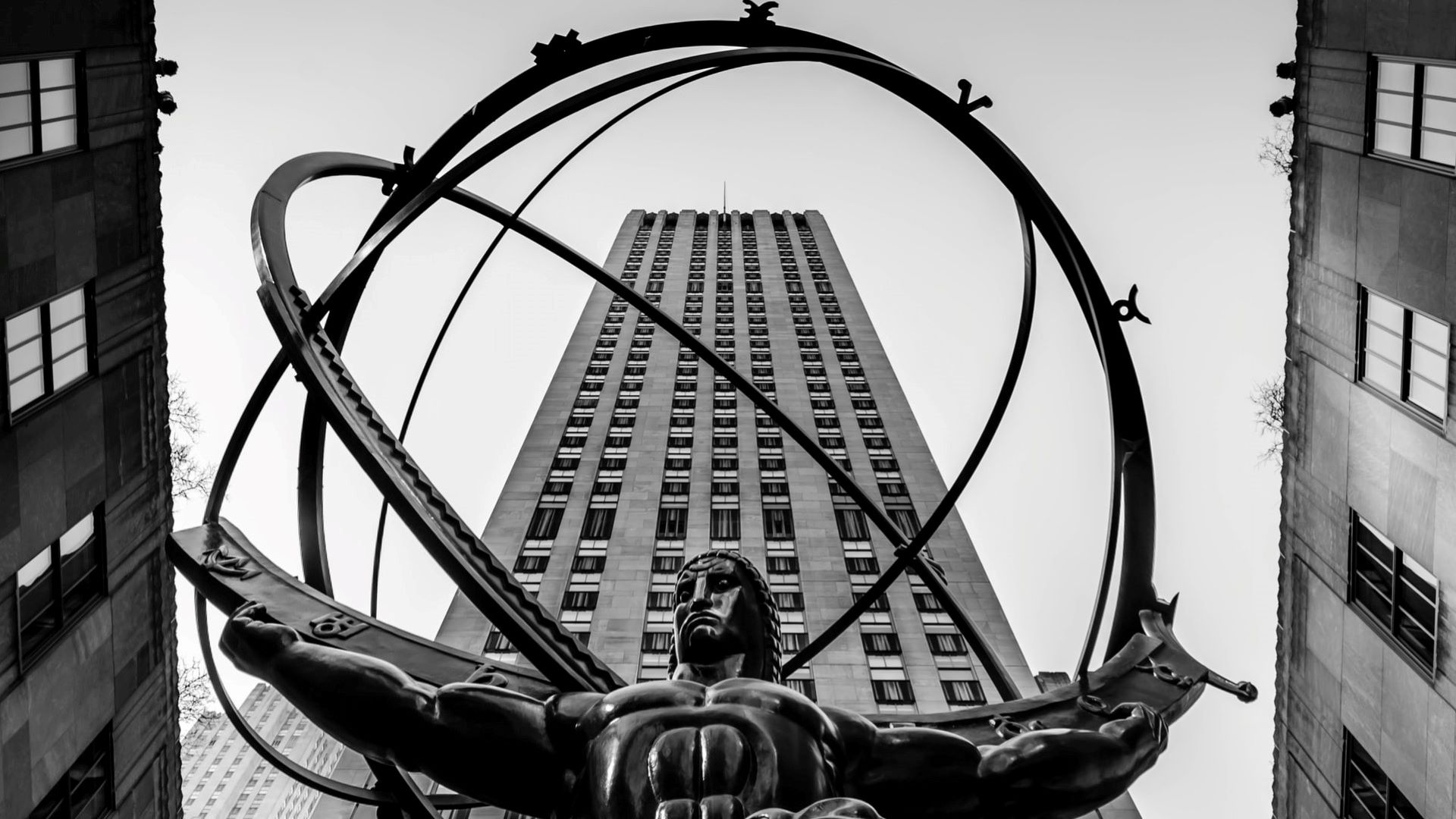Atlas Shrugged, Ayn Rand’s final and most influential novel, was first published on October 10, 1957.
No ordinary novel, Atlas Shrugged explores important philosophical concepts pertaining to reason, individualism, capitalism, and liberty. Indeed, it was in this novel that Rand developed the most complete presentation of her philosophy of Objectivism that can be found in any of her works of fiction.
Since its publication, Atlas Shrugged has become a cornerstone of pro-liberty literature, with its groundbreaking depiction of the virtues of individualism and the failings of altruism. It develops a compelling argument in favor of the pursuit of rational self-interest over rent-seeking and the whims of collectivism. Furthermore, in Atlas Shrugged, Rand provides a compelling juxtaposition of entrepreneurship and government tyranny.
When a novel has had as profound an impact in pro-liberty circles as Atlas Shrugged, it is worth reexamining the lessons it contains and the philosophy it presents, particularly when these lessons are every bit as relevant today as they were in 1957.
Rand’s longest and most elaborate work of fiction, Atlas Shrugged certainly has much to offer.
Dagny Taggart: the remarkable heroine of Atlas Shrugged
Most of the story of Atlas Shrugged is presented from the perspective of Dagny Taggart, a remarkable protagonist who can be defined by her confidence, intelligence, and abilities. Dagny is vice-president in charge of operations for the Taggart Transcontinental Railroad, of which her brother, James Taggart, is president. Due to his own incompetence, James relies heavily on Dagny for running the railroad, although he frequently undermines her ambition and enterprise.
As the brains behind Taggart Transcontinental, Dagny’s sense of individualism sees her disregard public opinion and prevailing attitudes of altruism. She is confident about knowing what to do and pursues her own goals, despite the interference of her brother, who places significant value on public opinion and his sense of altruism.
Dagny Taggart is an optimistic and curious character who confidently trusts her own judgement. She is passionate about her work and enjoys significant success. Her attitude towards both business and life in general sets her apart from her brother, who is characterized by nihilism and envy. However, one of the great ideological contrasts presented in Atlas Shrugged is that between Dagny’s brother and Hank Rearden, another central character to the story.
Hank Rearden and James Taggart: a juxtaposition of two worldviews
While Hank Rearden’s character does exhibit conflict between his business values and his personal life, he represents an embodiment of productivity and integrity. Throughout the novel, Hank Rearden can be seen in stark contrast to James Taggart in terms of their values and worldviews. Through his pursuit of self-interest, Rearden also has a positive influence on Dagny.
However, Rearden does undergo a transformative journey over the course of the story. In the beginning, he accepts a moral code that is antithetical to human flourishing. His demanding family makes him feel guilty over his success and ambition. As the story progresses, he gradually embraces his rational self-interest. Conversely, James Taggart, an ardent collectivist, remains repressed and continues to convince himself that his actions serve the public good.
Whereas Hank Rearden takes great pride in his highly innovative invention, Rearden Metal, James Taggart cannot find himself fulfilled through his work. He gladly takes credit for that to which he has not contributed and seeks to drag more entrepreneurial people down.
The story of Atlas Shrugged provides an important lesson on the difference between intentions and outcomes. In her promotion of capitalism, Ayn Rand highlights the virtue of self-interested entrepreneurship and illustrates this through Hank Rearden, who by pursuing his own goals, provides a service that is of great value to the general public. On the other hand, the public-minded James Taggart, who runs at a loss and seeks to pedal influence, is ultimately a destructive and nefarious force.
However, it is not Rearden’s usefulness in his pursuit of profit that serves to justify him. He also has the moral right to pursue his interests and lead a fulfilling life.
What truly makes Ayn Rand’s work stand out as groundbreaking is how her narrative runs completely counter to the typical tropes resulting from the prevailing altruistic and collectivist mindsets. One might expect that in most other novels, a self-interested entrepreneur such as Hank Rearden would automatically be an antagonist, whereas a community-oriented business leader such as James Taggart would be a likely hero.
Yet, in Atlas Shrugged and throughout Rand’s works, those being wronged are the innovators and productive people who are obstructed, whether out of envy or lack of understanding, by the malevolent collectivists.
Today, the message of Atlas Shrugged remains as relevant as ever
As the foremost of Ayn Rand’s works of fiction, Atlas Shrugged has played an extraordinary role in the development of a burgeoning community of students of Objectivism in the past number of decades. Furthermore, it remains extremely influential across wider pro-liberty circles.
In her later years, Ayn Rand proceeded to further elaborate on her philosophy through non-fiction. However, Atlas Shrugged has endured as her most influential work.
Through her unique approach, Ayn Rand challenged the dominant ideologies of her time, and the philosophical ideas presented in her novels have had a profound and lasting impact on many of her readers. While the merits of capitalism have often been defended on various grounds, Rand is different in that she fervently promoted capitalism as the only moral system that can be consistent with individualism and an objective theory of values.
64 years after it was first published, the philosophical arguments contained within Atlas Shrugged remain as powerful and relevant as ever. With the popularity of ideologies opposed to free markets and individual liberty showing no sign of weakening, there is no time like the present to read and promote the work of Ayn Rand.
If you would like to receive a free copy of thirteen previously unpublished letters by Ayn Rand, be sure click on the button below.
This piece solely expresses the opinion of the author and not necessarily the organization as a whole. Students For Liberty is committed to facilitating a broad dialogue for liberty, representing a variety of opinions.
This piece was first published on the Students For Liberty website.



